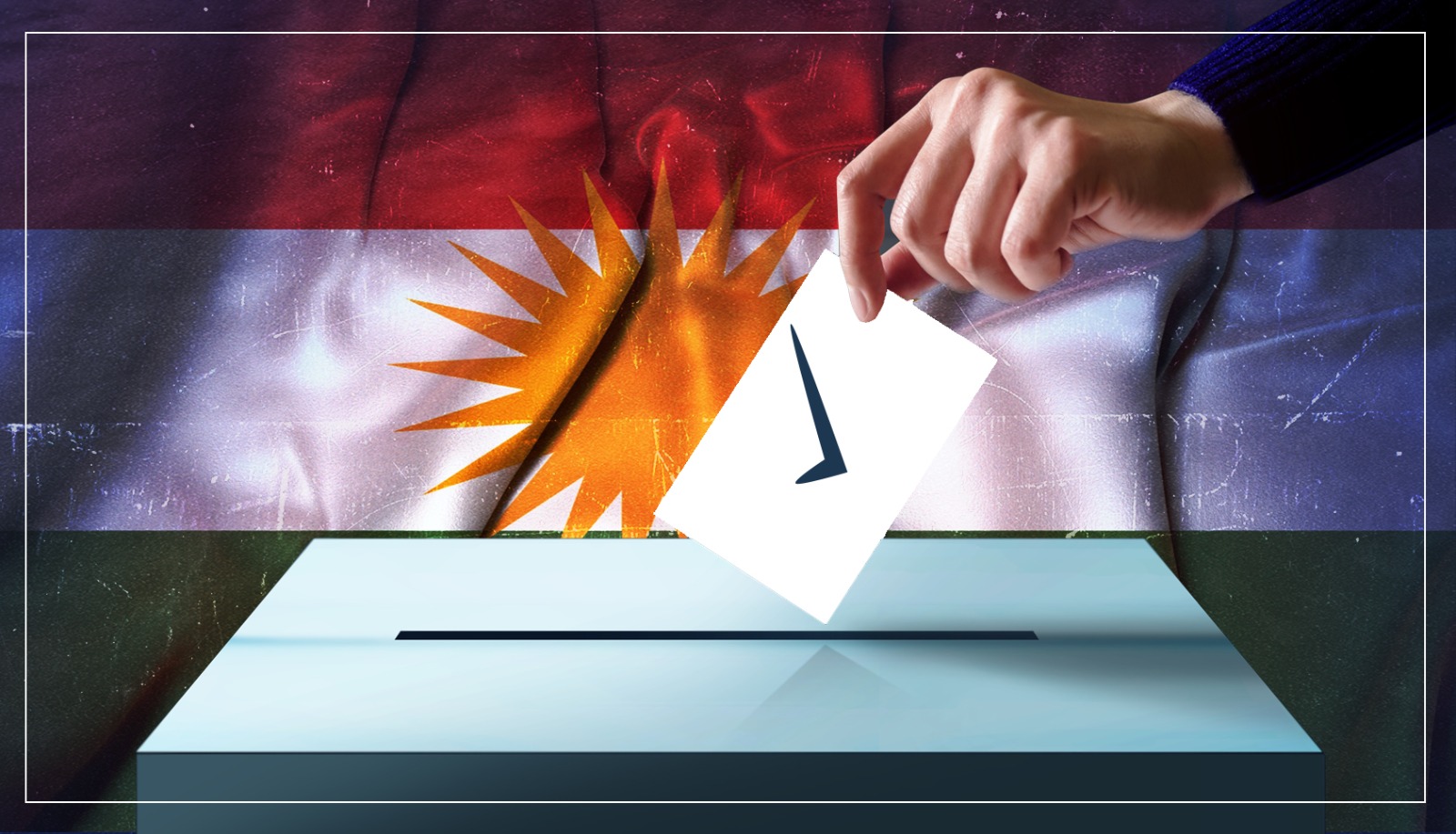Over the next four months, four elections will impact the Kurds directly and indirectly. Recent provincial council elections in Iraq exposed internal Shiite conflicts, triggering a political crisis in Anbar and Kirkuk. The Kurdistan parliamentary elections are crucial for institutional legitimacy and shaping the political landscape. Concerns about public participation, domestic competition for leadership mechanisms, and discussions about Iran's next year's elections have left a significant mark. In Turkey, the main focus of the March 2024 elections is expected to be major city municipalities, potentially reshaping the country's political dynamics.
Iraqi Provincial Council Elections
The upcoming election has the potential to propel Iraq into a new phase, intensifying the focus on the challenging conflict within the three regions of southern Iraq, Anbar, and Kirkuk.
Primarily, this could reignite internal Shiite conflict, with Sadr's withdrawal and election boycott creating an opening for Nuri al-Maliki's State of Law list and Asa'ib Ahl al-Haq( Al-Safwa+Al-Khadamat) to potentially secure power swiftly especially in the southern provinces of Iraq and the Sadrists are unlikely to accept it easily. Empowered by Article 122 of the constitution and laws governing unorganized provinces, provincial councils wield considerable authority, enjoying autonomy from ministries and financial independence, and designates the governor, who assumes the pivotal role of the initial executive at the local level. Notably, if we look at the 2021 elections as a criterion, the State of Law list is second in many of the seven provinces where the Sadrists won the most votes, and the first winner in Mussana province this will give him a good chance of playing a key role in appointing governors in southern Iraq. This strategic move may serve to diminish the Sadrists' impact. Additionally, Ahl al-Haq, participating in various provinces, seeks to bolster its position as a significant player in Shiite politics.
If Halbousi's party secures a majority in Anbar, it could leverage this position to advocate for regionalization through the provincial council, as outlined in Article 119 of the constitution. Given Halbousi's removal from the presidency, pursuing regionalization appears to be a strategic move for an ambitious politician. Furthermore, the provincial council and governor wield influence over Anbar's security and economic matters, as some Shiite armed groups have actively observed and, in fact, developed their own lists in relation to it. Considering Anbar's proximity to multiple countries and hosting a US military base, the elections extend beyond domestic concerns, carrying significant foreign policy and geopolitical implications.
Kirkuk, experiencing elections after a prolonged period, anticipates increased tension. The interplay of internal conflicts among communities, alongside the dynamics between the Kurdistan Region and Baghdad, adds complexity to both the election results and the appointment of a new governor for Kirkuk, underscoring the intricate geopolitical balance in the region.
Kurdistan Parliamentary Elections
Despite prior uncertainty, the prospect of holding elections in February 2024 in the Kurdistan Region has now increased. The region grapples with complexities arising from the Federal Court's decisions on parliament, ongoing discussions about the electoral law, and potential challenges to the legitimacy of its administration and institutions if further delays occur. The upcoming parliamentary elections gain significance given difficulties in allocating the Kurdistan Region's budget and addressing internal issues. Notably, some political forces in Baghdad may seek to influence the electoral process, potentially creating obstacles related to budgetary matters and other institutions. Consequently, the budgetary disputes between the Kurdistan Region and Baghdad are likely to persist until after the Kurdistan parliamentary elections, with political and military events of the region exerting their influence somehow.
Iranian Legislative Election
Iran's upcoming parliamentary elections in March are already shaping up as a significant event, with the expected turnout taking center stage. In the last parliamentary elections, official figures from the Interior Ministry revealed a mere 42.57 percent voter participation, despite facing criticism, marking the lowest turnout in Iran. The election saw numerous aspiring candidates being barred from running, resulting in a consolidation of power within the conservatives, where over 15,000 candidates were blocked, led to the creation of a parliament dominated by a group. Ebrahim Raisi succeeded in 2021, but his tenure soon witnessed nationwide demonstrations, likely linked to a concerted effort to implement a policy that aimed at centralizing power within the country.
The upcoming parliamentary elections next year align with the election of the Supreme Leader's Council of Experts. The candidacy of former Iranian President Hassan Rouhani for the council, where Ebrahim Raisi currently serves there, has sparked discussions about domestic rivalries vying for control of this crucial institution responsible for determining Iran's future leader. Hence, Iran's imminent elections are poised to become an arena for internal competition within the ruling elite, influencing the trajectory of both domestic and foreign policies, regardless of the ultimate outcome.
Turkey's 2024 Local Elections
Following victories in parliamentary and presidential elections, Erdogan's coalition is now eyeing the reclamation of major city municipalities like Ankara and Istanbul, previously lost. Despite securing this year's election with a nationalist-Islamic discourse supported by the Nationalist Movement Party, Erdogan is likely to adopt a more conciliatory tone in the municipal elections, to hinder cooperation from opponents. For instance, in Istanbul, the HDP's vote, although declining, stands at 19.8 percent, and in Izmir, it holds a significant 54.7 percent, playing a crucial role in Erdogan's competition with the Republican People's Party (CHP). It may not end with agreement between AKP and HDP, however the Kurdish vote assumes greater importance for Erdogan in municipal elections compared to the general elections.



